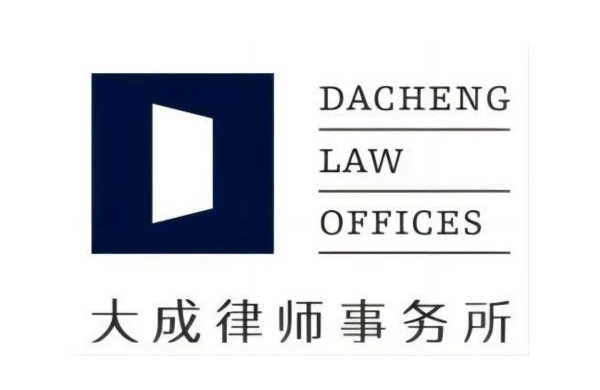Did not receive verification mail? Please confirm whether the mailbox is correct or not Re send mail

IPR Daily
- 2017-05-16 17:22:50
China Food and Drug Administration’s New Policies to Promote IP and Innovation in the Pharma Section
The death of patent linkage which had been heralded by draft Drug Registration Rules appears to be premature. In fact, the China Food and Drug Administration has stated that it is interested in developing a more robust patent linkage system,. On May 12, 2017, the CFDA published a draft policy announcement soliciting public comment on developing a more IP environment for innovative drugs, including more robust patent linkage and addressing other areas, such as data exclusivity.
Patent linkage provides a “linkage” between pharmaceutical regulatory approvals and patent infringement, whereby regulatory approval is denied until the relevant patent is expired or determined to be invalid or not infringed. A linkage system for a country like China would provide greater stability in patent enforcement for both innovators and generics, by insuring that innovators are amply protected by their innovation, and generic companies are afforded opportunities to seek regulatory approval based on proof that a patent that might otherwise prevent their entry into market is invalid or not infringed by the generic companies’ product. The US experience with Hatch Waxman, which established our patent linkage system is that it has helped “ generics account[]for 75 percent of all prescribed drugs, saving consumers and society more than $1 trillion over the last 10 years”.
This draft policy also contemplates additional improvements on data exclusivity, protecting confidential information in its procedures and developing what appears to be an “Orange Book” type system for disclosing relevant patents, as well as the periods for data exclusivity in new pharmaceutical marketing approval applications.
Providing enhanced data exclusivity protection appears to be an effort to implement a 2012 JCCT commitment regarding what constitutes a “new chemical entity” for purposes of regulatory data protection. Certain foreign countries, such as Chile, provide data exclusivity within a window of overseas product launch, which this draft appears to borrow from to the extent of a commensurate reduction of the period of data exclusivity based on delays in introducing a novel pharmaceutical products beyond a one year window into China. The draft thereby provides incentives for innovative products first launched overseas to be expeditiously introduced into the Chinese market.
Additional protection of confidential information in government proceedings appear to be consistent with proposed amendments to China’s Anti Unfair Competition Law and JCCT commitments. In addition, the enhanced protection for data exclusivity is also consistent with proposed changes in the AUCL that remove the “practical applicability” requirement which by law would deny trade secret protection to experimental failures.
The draft policy does not discuss how the courts might handle data exclusivity or infringement issues, including the role of patent administrative agencies, or other aspects related to determinations of infringement that affect marketing approvals.
A rough, draft translation is attached here. Comments are due by May 25 although the deadline for consultations is June 10. This is a rough, rush translation so any edits would be much appreciated.
All told, the draft is a very positive development for Chinese and foreign innovative pharmaceutical companies in one of the most important markets in the world.
In another development, exactly one week before this important CFDA policy document was released, the World Health Organization released its report “ China Policies to Promote Local Production of Pharmaceutical Products and Protect Public Health” (May 5, 2017). The IP chapter of this apparently unrelated report focuses on technology transfer (Bayh-Dole), genetic resources, compulsory licensing, data exclusivity, and the need to improve domestic patent policy. The introduction views patents as efforts to “monopoliz[e]” medicine, rather than (in my view) of taking a more pro-competition stance of recognizing that patents provide incentives to innovation and not necessarily monopolies and policies such as patent linkage strike a balance between generics and innovative companies to insure stability and competition in the market place. In this sense, the report does not appear to anticipate the important new CFDA policy discussed above. The words “patent linkage” do not appear in the IP section of this report, although the report does reference in an introductory footnote the “Guiding Opinions for Promoting Healthy Development of the Pharmaceutical Industry” (March 11 2016) which has a goal that generics are launched for 90 percent of drugs with expired patents by 2020. This could be read to infer that generics are not launched when infringement has been determined, such as according to these proposed CFDA linkage policies. In addition, the report does not consider issues the importance of post filing supplementation of data for China’s innovative industries and the role of China’s innovative companies in promoting reforms that improve IP.
- I also said the two sentence
- Also you can enter 140words
 PurpleVine Successfully Assists Client in Invalidating Sisvel US Patent
PurpleVine Successfully Assists Client in Invalidating Sisvel US Patent Chang Tsi & Partners Successfully Represents Wuxi's First Intellectual Property Civil Case Attached to Criminal Case
Chang Tsi & Partners Successfully Represents Wuxi's First Intellectual Property Civil Case Attached to Criminal Case China Monthly Antitrust Update: February 2024
China Monthly Antitrust Update: February 2024 IPOS was publishing a legal decision involving the trademark of tech giant, Google
IPOS was publishing a legal decision involving the trademark of tech giant, Google


